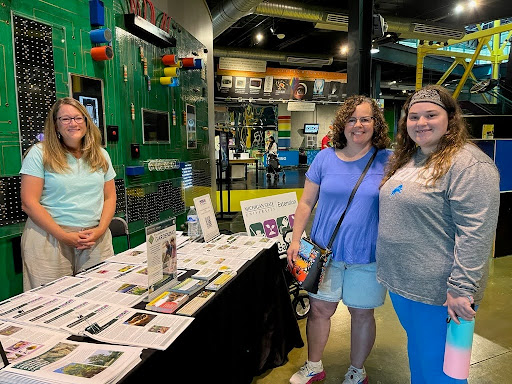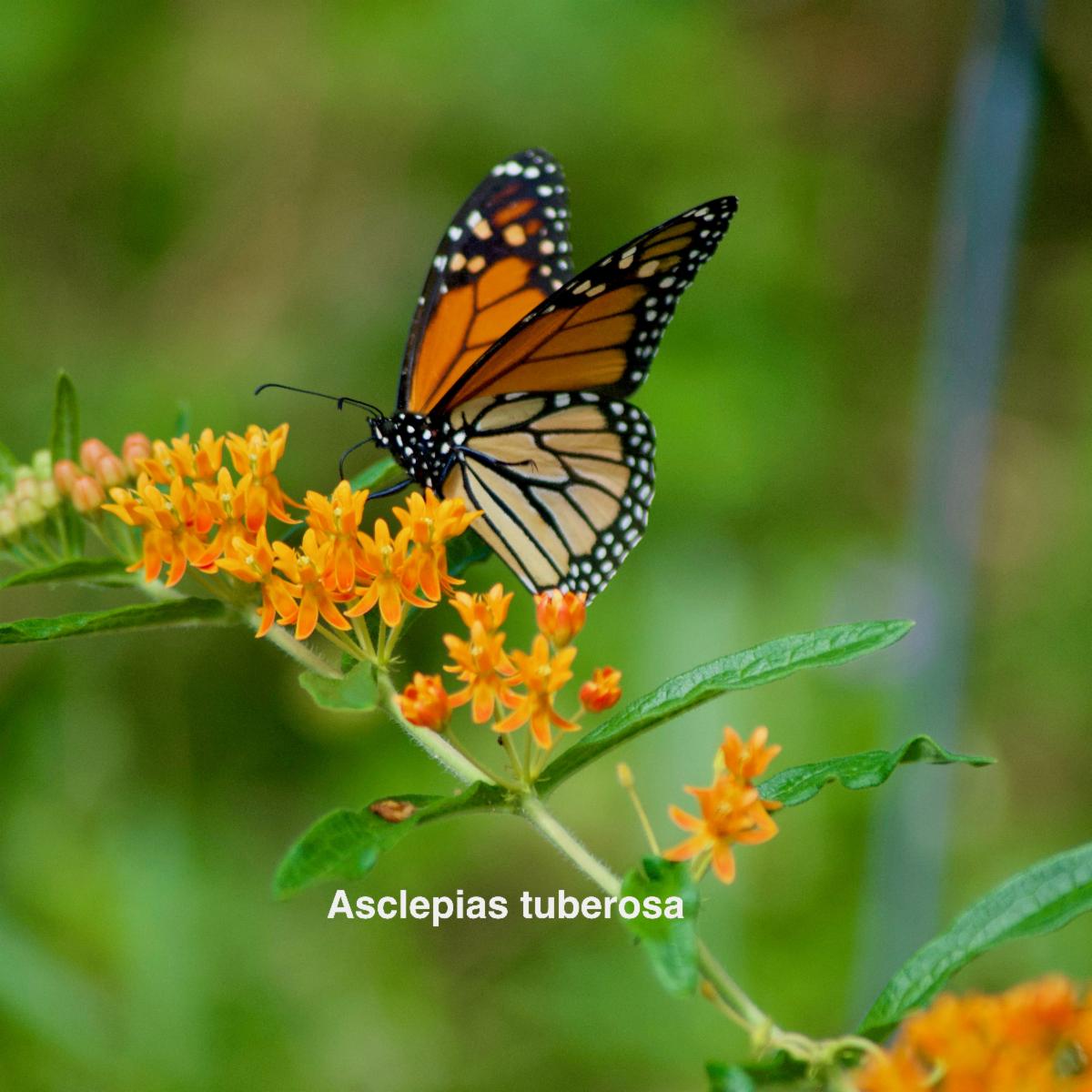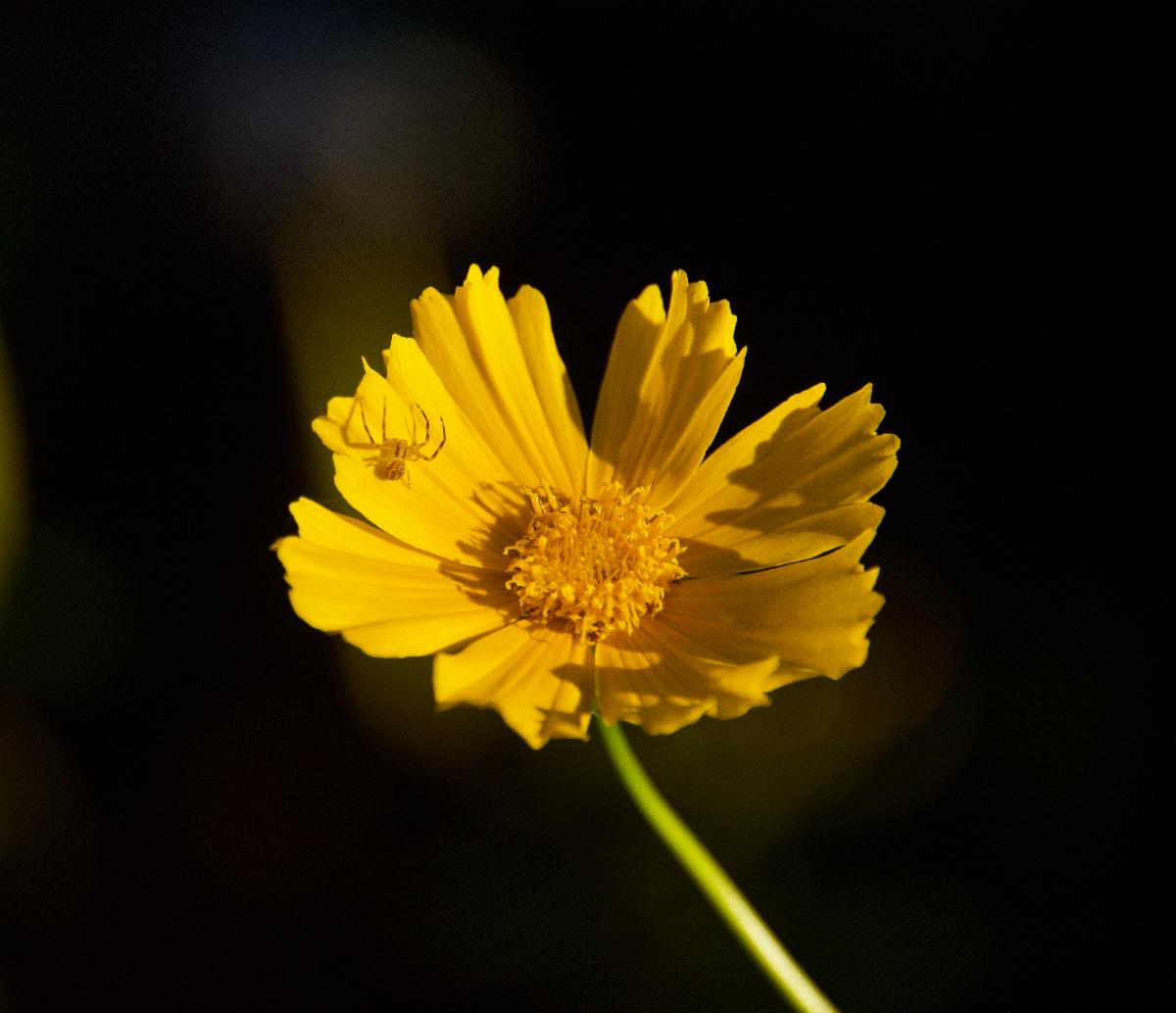Swamp Milkweed, Asclepias incarnata. Tolerant of soggy soils, native throughout Michigan, and a host plant for Monarch Butterflies. Do you see out little friend casually munching away near the center of the frame? Learn more ways to support Monarch here. Photo by: Caitlin Splawski. | |
The Oakland Gardener
July 2024
| |
MSU Extension volunteers setting up the Smart Gardening table. |
MSU Extension Master Gardeners take Smart Gardening to the Michigan Science Center
Article and Photos by: Kelly Stanesa, MSU Extension Master Gardener trainee
MSU Extension Master Gardener volunteers from both Wayne and Oakland counties chatted with visitors attending the STEMinista Project Celebration at the Michigan Science Center in Detroit. The purpose of this project is “to connect girls to role models as a resource in order to see themselves in STEM,” (science, technology, engineering and mathematics). With so many our Extension Master Gardeners working and volunteering in STEM fields, this event was a perfect fit for doing some Smart Gardening Outreach
Some of the topics discussed were growing strawberries, dealing with wildlife eating new plantings, and talking through appropriate planting locations. The Mi-Sci Museum was a wonderfully interactive environment providing a fun day for everyone involved. Thanks to the dedicated group of Extension Master Gardeners that made this day happen!
For more information about the STEMinista Project:
https://www.mi-sci.org/steminista-project/
|  | |
Talking strawberries with mom and daughter from Wayne Country. | |
MSU Extension Master Gardener Project Spotlight | |
 |
The Julie Ann Wang Garden at Stage Nature Center
Article by: Louise Sloan, Advanced Extension Master Gardener, photos courtesy of Julie Ann Wang
Summer is a busy time for gardeners. It’s always a challenge for me to step away from both my client’s and my personal gardens, but I’ve found that time away from those gardens I’m familiar with is instructive and inspirational. Garden tours offer new and experienced gardeners alike a view into various garden styles. On July 10th, the Troy Garden Club is hosting their annual garden walk and is including a garden that is certain to introduce visitors to native plants that will thrive in our Michigan landscapes. The Stage Nature Center’s native garden, under the direction of Advanced Extension Master Gardener (EMG), Julie Ann Wang, offers many examples of plants that can add native beauty to our landscapes and serve as host plants to numerous insects and birds.
Before she was leading maintenance of a featured garden, Julie Ann was active in the Southeast Michigan Chapter of the Sierra Club. “I liked gardening,” she explained, “but I didn’t know much and talked a lot about taking the Master Gardener course. But I never signed up.” Her husband Steve was paying attention and gifted her entrance to the 2016 winter EMG course. Class participants are required to complete 40 hours of volunteer work to earn the Master Gardener title, so Julie Ann turned to the Stage Nature Center. When she was with the Sierra Club, she had participated in invasive plant pulls among other activities. Stage staff member, Mary Esther Krueger, approached Julie Ann with a dilemma that an aspiring Master Gardener could tackle: transforming an abandoned ornamental garden into a Michigan native garden.
Along with three other gardeners, Julie Ann and her team started whacking back overgrowth, developing a pathway, and trying to identify the plants that were there. Julie Ann remembered, “We did the best we could, but we definitely made mistakes.” The longer they spent in the garden, the more they learned through internet searches, native plant classes, and observation. The team began working with the Stage Nature Center to create educational signs to share this gained knowledge with the visiting public.
Karol Carter, fellow Advanced EMG and a volunteer in this garden, noticed that the nature center’s Monarch Way Station was in dire need of attention. With the native garden on solid footing, she reached out to Julie Ann and volunteers for more help. Julie Ann helped revitalize the rain and monarch gardens, a task that is still ongoing. The work, while done with much donated labor, still requires funding to purchase new plants and to create educational information. The Troy Garden Club has been a valued supporter of the garden and is now including the space as a bonus garden in their annual walk.
|  | |
|
As exciting as heading up a featured garden is, Julie Ann says that her favorite part of being an Extension Master Gardener is encouraging new gardeners and introducing them to native plants. “Once a garden brings in butterflies, the gardeners are hooked,” she said. Many of these volunteers have turned traditional suburban landscapes into native plant havens that support species of all sorts. “We don’t take many pictures of the whole garden because we are excited to see the caterpillars and butterflies on the leaves. Most of our pictures are of them,” Julie Ann explained. She has an extensive photo library of these visitors, which she shares with volunteers to help expand their knowledge and to continue spreading word of a native gardens’ importance to our shared environment.
Julie Ann explained that besides learning about natives, she’s also had to change how she approaches the long term maintenance of the garden. Deer and rabbits, despite being part of the local fauna, can wreak havoc on the garden in a way that even curious, rambunctious children can’t—and the children are learning, which makes a stepped on plant easier to accept. Fencing has helped to keep the wildlife at bay, but can be unsightly and hard to install. Julie Ann sees the way forward for the garden is to “let it go.” Rather than trying to impose the gardeners’ will on the garden, she and the volunteers are choosing to re-wild the space. Although this may result in fewer native varieties, those that thrive will still show how native plants serve an ecological purpose.
In the future, Julie Ann hopes to expand the garden’s educational purpose. She and her team will continue tagging plants and supporting the Stage Nature Center’s annual plant sale set for September 7th. The volunteers are focusing on the rain garden and Monarch Waystation rehabilitation as well as experimenting with winter sowing to grow their own plant material. These trials help build up educational programs the center can share with the public.
The gift of the garden Julie Ann received in 2016 has become a present to the public. She has shared the knowledge she’s gained in the many hours spent in the garden and in research with all of the garden’s visitors—humans and insects alike. The garden’s evolution is yet another teachable moment: sometimes we need to step back, let nature take its course, and follow its lead. The garden shows us how to create environments that serve us and the tiny creatures that share the environment with us. Taking a break from the hustle and bustle of life to visit the Stage Nature Center garden is time well spent so we can bring its lessons home.
| |
|
Registration for the MSU Extension Master Gardener Conference is now open!
Whether you are a returning attendee or have never attended, this is a great educational event that is now open to the public! Connect with MSU EMGs and Extension staff, learn about sustainable programs at Interlochen and beyond, and hear from talented keynotes and speakers from many organizations. Come up early and/or stay later with pre- and post-conference tours. So many choices at such a lovely venue, we cannot wait for you to join us.
Register today to get the best selection of workshops and sessions!
Cost is $325, which includes all sessions, keynotes, and four meals.
| |
When beige beetles with orange legs start to take over your garden this summer
Nate Walton, Michigan State University Extension - June 20, 2024
The rose chafer, Macrodactylus subspinosus, appears in many areas of Michigan in mid-late June. This is a native Michigan insect and a member of the same family (Scarabaeidae) as June beetles (Phyllophaga spp.) and Japanese beetles (Papillia japonica). However, the adult rose chafer looks quite different from a June beetle. Adults are about 0.05 inches long, slender, usually light tan with long, reddish-brown legs. They are also rather gangly in appearance.
| |
Tips for composting in the summertime
Eliza Hensel, Michigan State University Extension - June 27, 2024
Tips and tricks to keep in mind when managing your backyard compost pile during the summer. When the weather warms and our gardens come back to life, so do our compost piles. Managing your compost pile is important to create a nutrient rich soil amendment for your gardens or crops and avoid smells and pests in your compost bin. When composting during the warmer months, here are some things to keep in mind that may help your compost produce a finished product quicker, more efficiently and without attracting unwanted critters to your backyard.
| |
What bug chewed on my plants last night?
Nate Walton, Michigan State University Extension - June 27, 2024
Under cover of darkness, a variety of animals might chew on your leaves. So how do you know who to blame and what to do about it? As the sun sets and streetlights come on, a host of late-night prowlers are getting ready to feast on your plants. If you don’t catch them in the act, it can be startling to wake up to plants with holes chewed in them, missing leaves or being cut off completely at the base.
| |
Get a head start on the summer food preservation season
Kara Lynch, Michigan State University Extension - June 14, 2024
It might seem like you have just planted your garden, but very soon after planting, there will be a summer bounty of all your favorite local produce, ready to be preserved. Before you get busy in the garden and kitchen making your favorite salsa or dill pickles, take advantage of this slower time and get ready for summer canning season.
| | |
MSU Extension programs and material are open to all without regard to race, color, national origin, gender, gender identity, religion, age, height, weight, disability, political beliefs, sexual orientation, marital status, family status, or veteran status. | |
| | | |